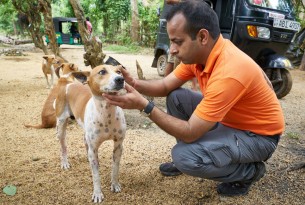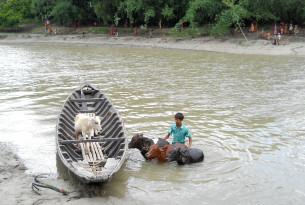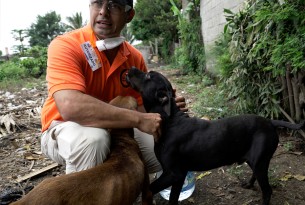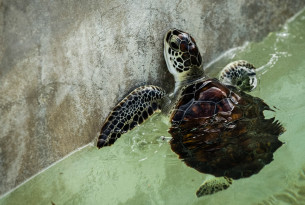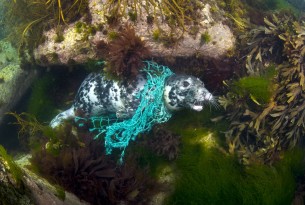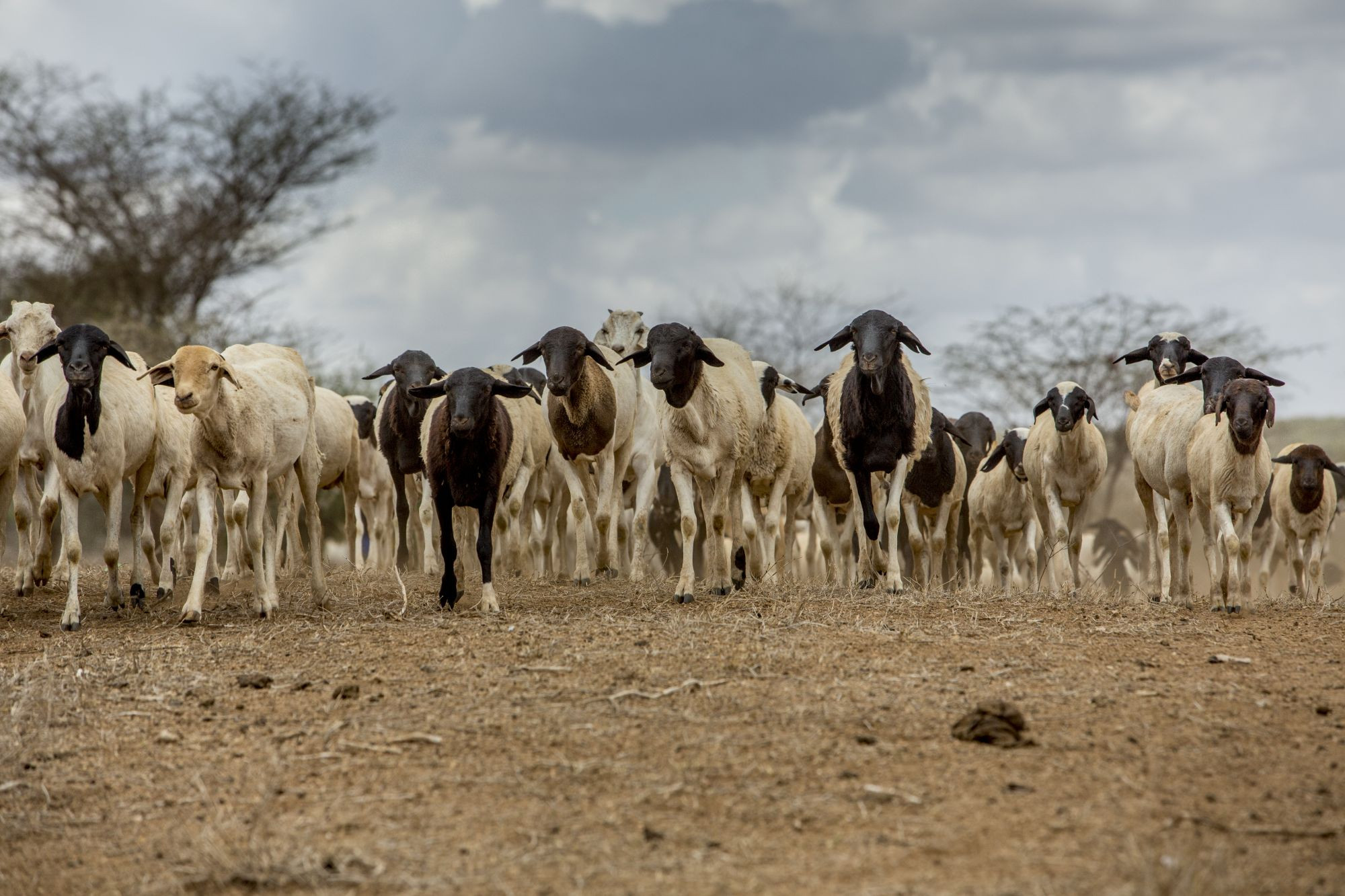
Emergency aid to 79,000 starving animals in Kajiado
The persistent drought in the Horn of Africa has left thousands of animals desperate for food and veterinary treatment
The devastating impact of drought
In Kajiado County, one of Kenya’s eleven most affected counties, the situation is dire. Thousands of animals have died from disease and a lack of food and water, leaving a community afraid for the future.
The riverbeds which once flowed with water have dried, leaving behind dusty tracts of land. The scorching sun has left dried vegetation devoid of life.

A dry riverbed in the Kajiado county.
A few goats and sheep graze the drying grass that sprang up following showers two weeks ago. But the grass is already withering and will all be gone in the next week.
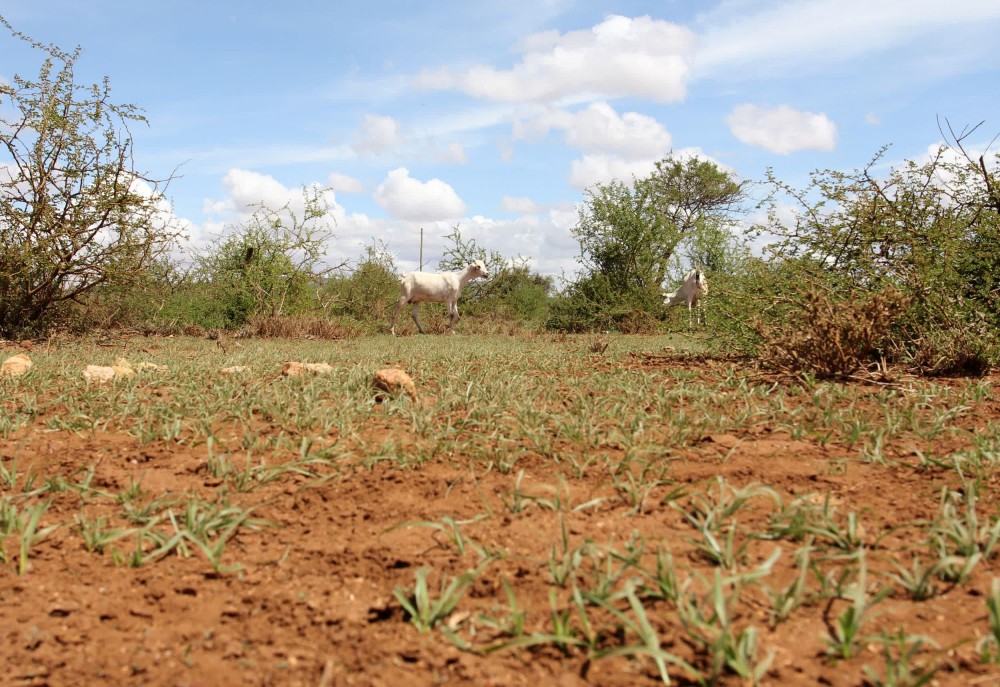
Goats walking through an arid landscape.
Pastoralists in the area predict the drought will continue for the foreseeable future.
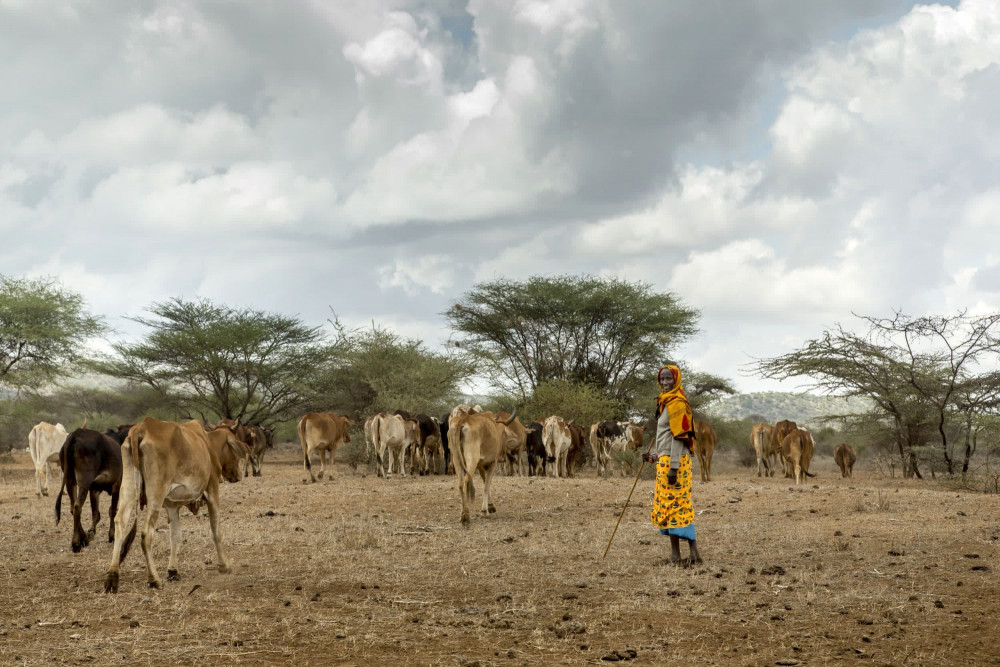
Kajiado is one of the worst affected counties in Kenya, with the Horn of Africa experiencing some of the worst drought levels in decades.
The Maasai depend on their animals, and their animals depend on them
Kajiado county has a population of about 700,000 people, mostly Maasai, whose main source of livelihood comes from their animals. They depend on them for food – milk, eggs and meat. They sell them to pay school fees and meet for basic needs.
The drought has forced people to travel vast distances with their animals to find remaining grass for them to eat.
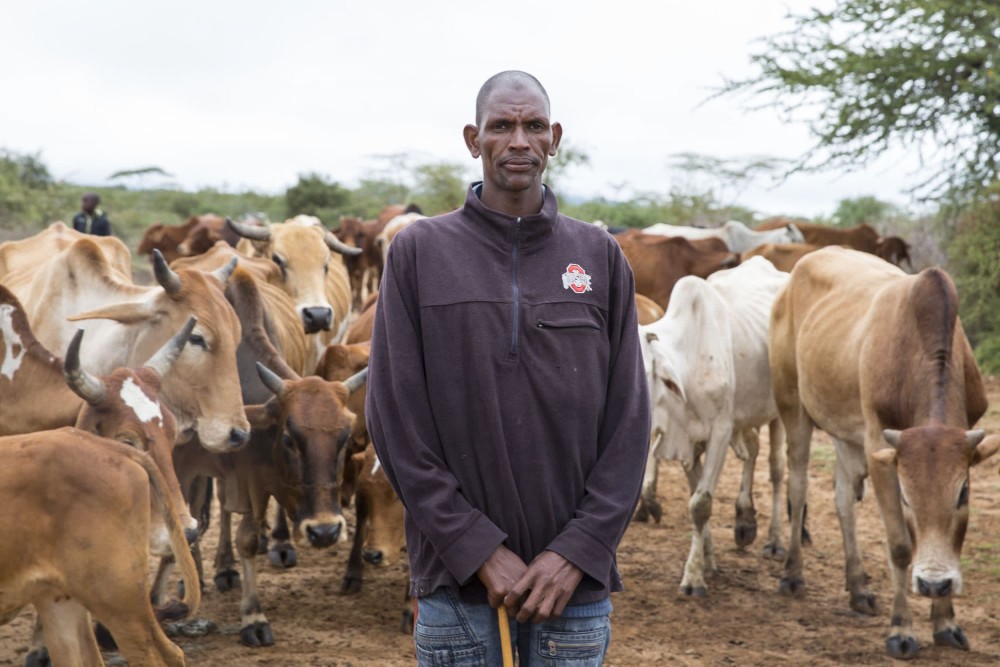
Joshua Maasi, owns 14 cows, and has travelled from neighbouring country Tanzania in search of pasture and water for his animals. The distance between Kajiado county and nearest border crossing at Tanzania is 78 km.
This area is semi-arid and cannot support any other economic activity. As a local saying goes, “A Maasai is worth his cows”.
Emergency aid for vulnerable animals
This drought is expected to continue and if conditions persist, thousands of livestock will be at risk. To support these communities, we’re providing emergency feed, mineral supplements, and veterinary care to 79,000 cattle, sheep, goats, and donkeys. Meanwhile the government is organizing water deliveries.
Together, World Animal Protection, the government and other partners are working to help the most vulnerable communities in Kajiado.
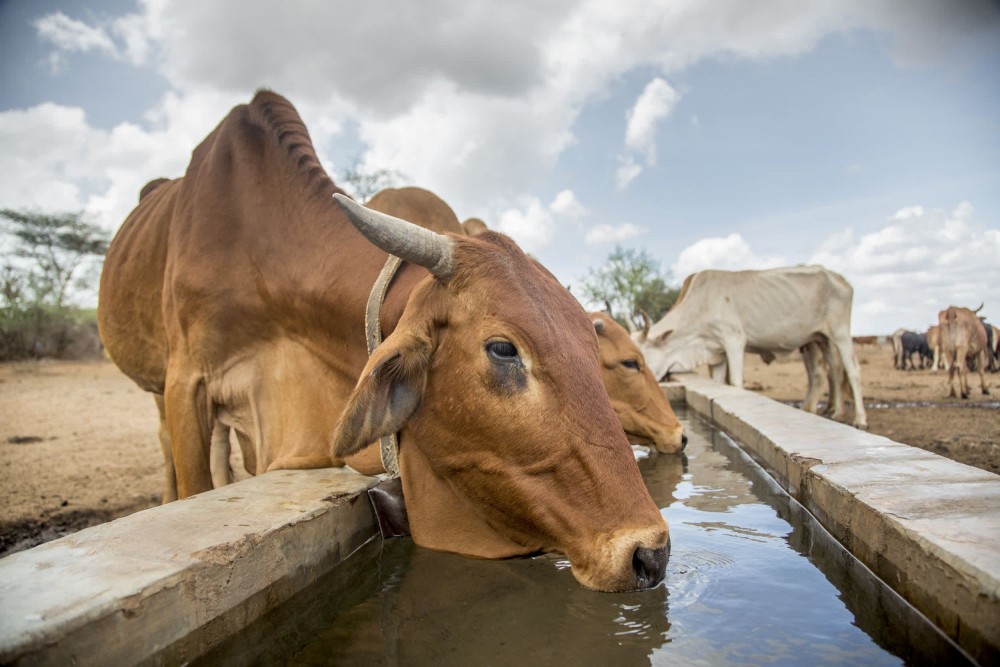
Meet some of the animals and people you’re helping
The drought has left animals weak and susceptible to disease. Cattle in their thousands are lined up, ready for vaccination and deworming. The pastoralists told us how relieved they were that help had arrived for their animals. From the frail and weak profiles of their cows, it was clear time was running out.
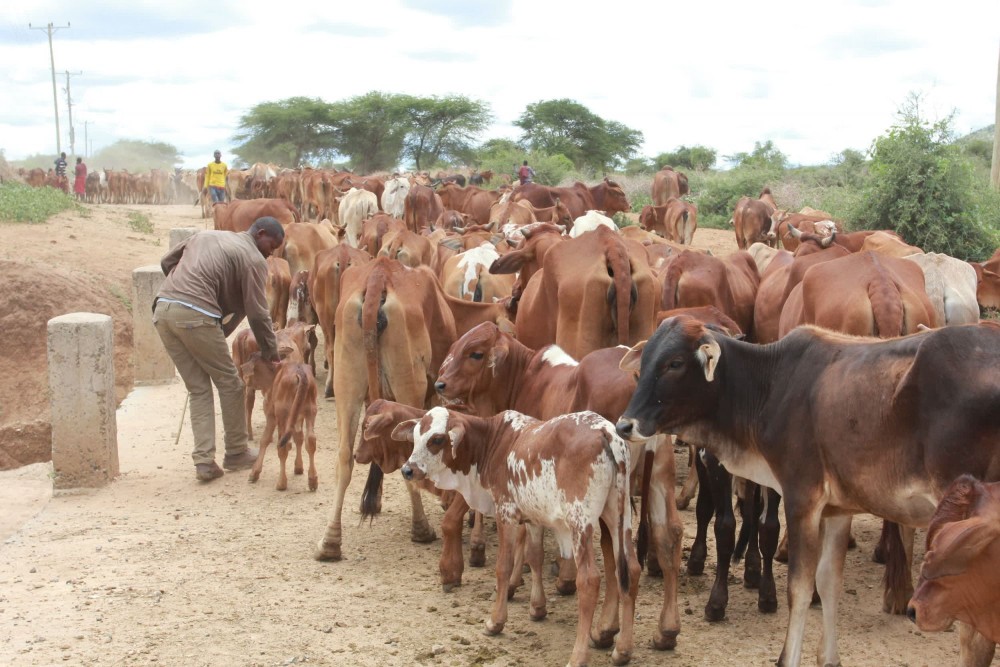
Cows lined up for veterinary treatment.
Kashinko Ngerioni, is 70 years old and has lost half of his cows – 200 animals – due to drought and disease since 2009.
Kashioki Ngerioni’s cow Indorueda (“friend” in Maasai) was one of the more visibly sick animals. She had a huge shoulder abscess that was extremely painful. Transmitted by biting flies, the abscess would not clear up if left untreated.
“Indorueda was already weak from the drought,” said Kashioki. “Without treatment, I’m afraid she would not make it.”
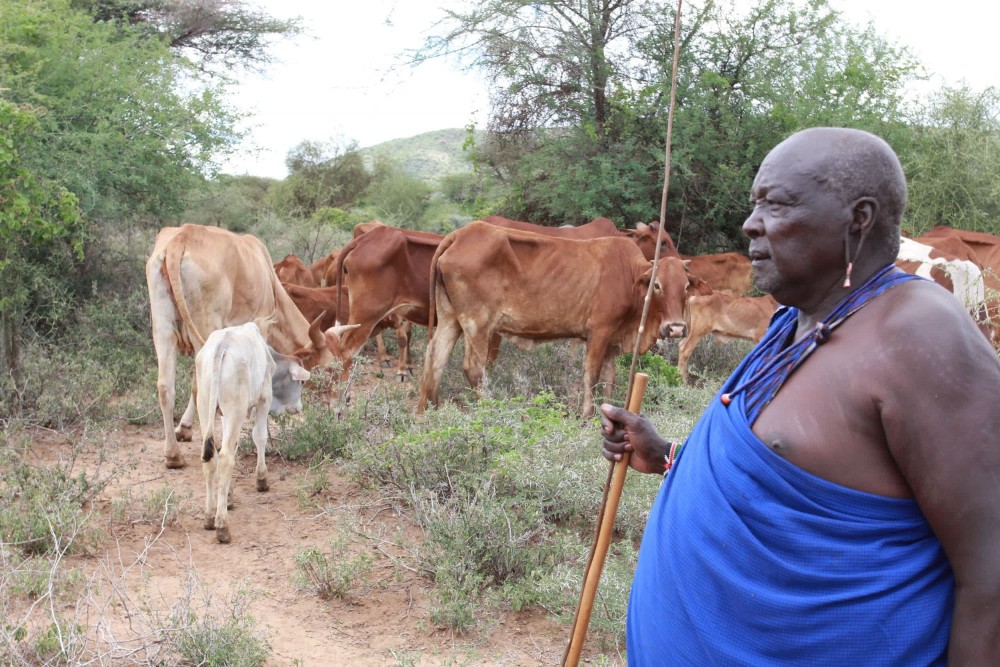
Kashinko Ngerioni and his cows.
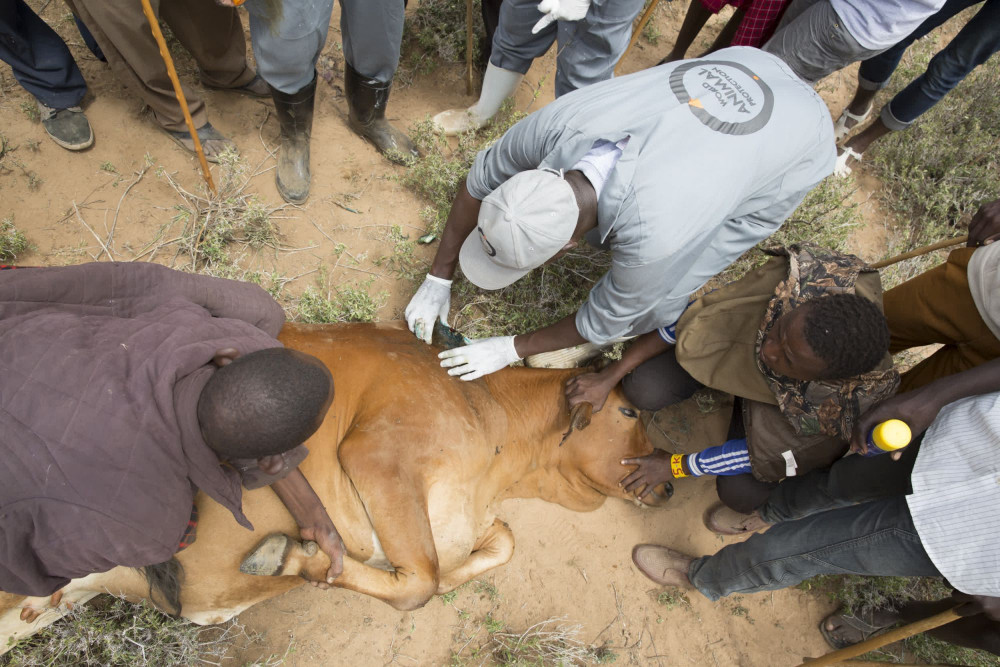
Kashioki Ngerioni’s cow Indorueda receives treatment for a shoulder abscess. The disease itself is not fatal but makes the animal very weak.
Stanley Malubo is 30 years old and has 100 cows and 80 goats. He sent off his stronger animals to remaining pasture grounds but stayed back with the weakest ones that needed veterinary treatment.
One of his cows, Garissa has lumpy skin disease, a condition she’s had for a couple of months and is gradually making her weaker. She’s named after the place she was brought from – a district so ravaged by drought that the owners sell them off rather than see them die. We treated his cows and also asked that our partners in the county include lumpy skin treatments in the ongoing work with the Maasai pastoralists.
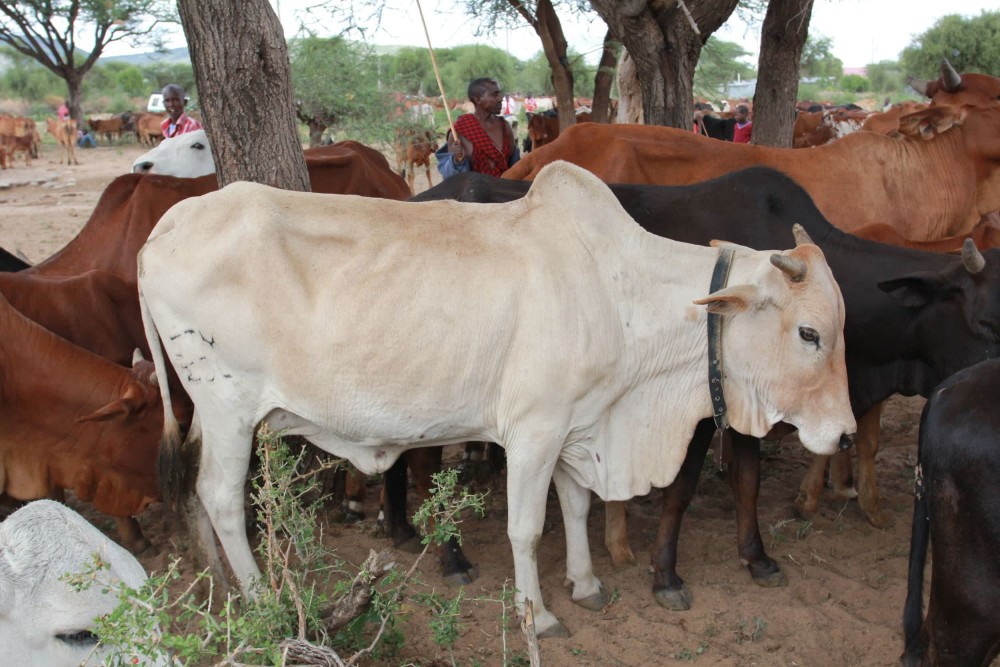
Stanley Malubo and his cows.
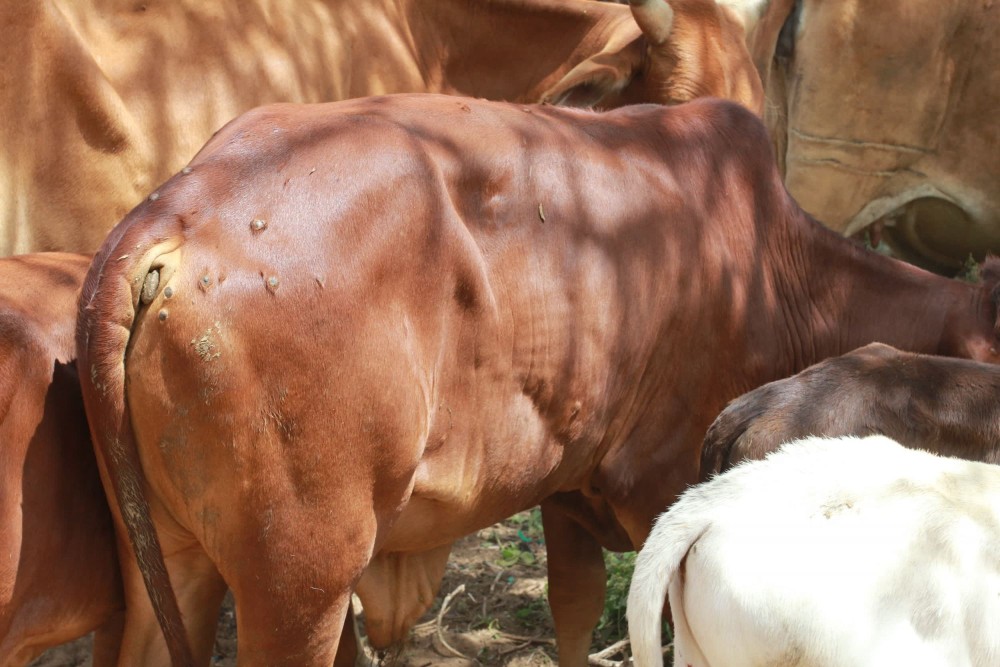
Garissa, one of Stanley’s cows, showing signs of lumpy skin disease.
Anthony Laseti, has 150 cows. He says he truly appreciates our help because in the current conditions he doesn’t know how he would be able to help his animals.
“There are very many diseases and infections putting our animals at risk. We are however glad, that in this dark shadow, World Animal Protection has dewormed and vaccinated our livestock from disease. It reduces the burden for us as we focus on feeding the cattle” Anthony concludes.
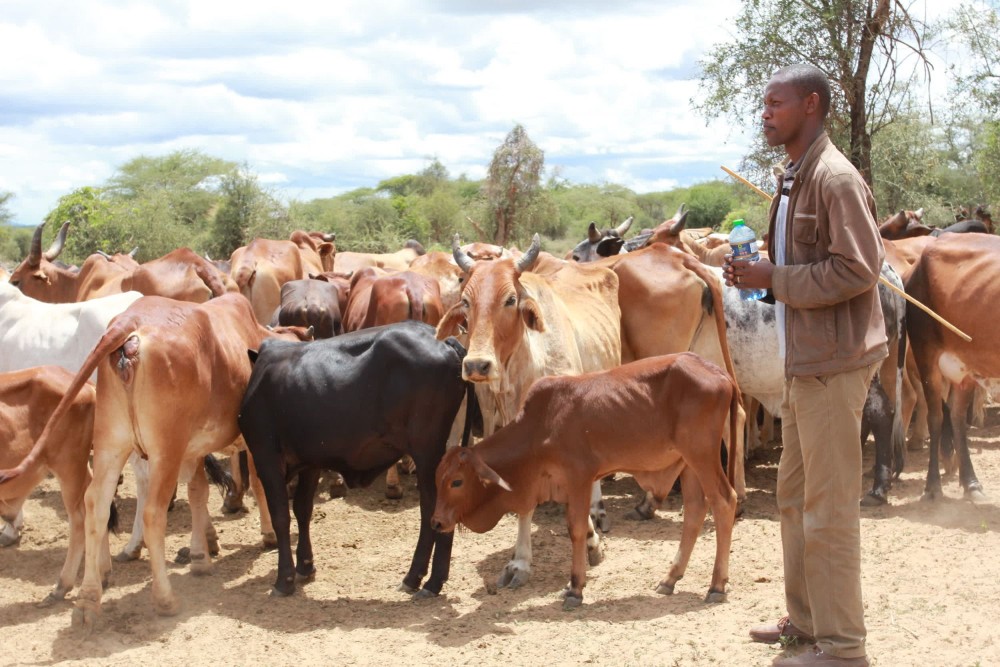
Anthony Laseti and his cows.
We want to thank everyone who has supported our emergency relief efforts in Kajaido. It’s thanks to our supporters that we can deliver help to animals wherever they need us.
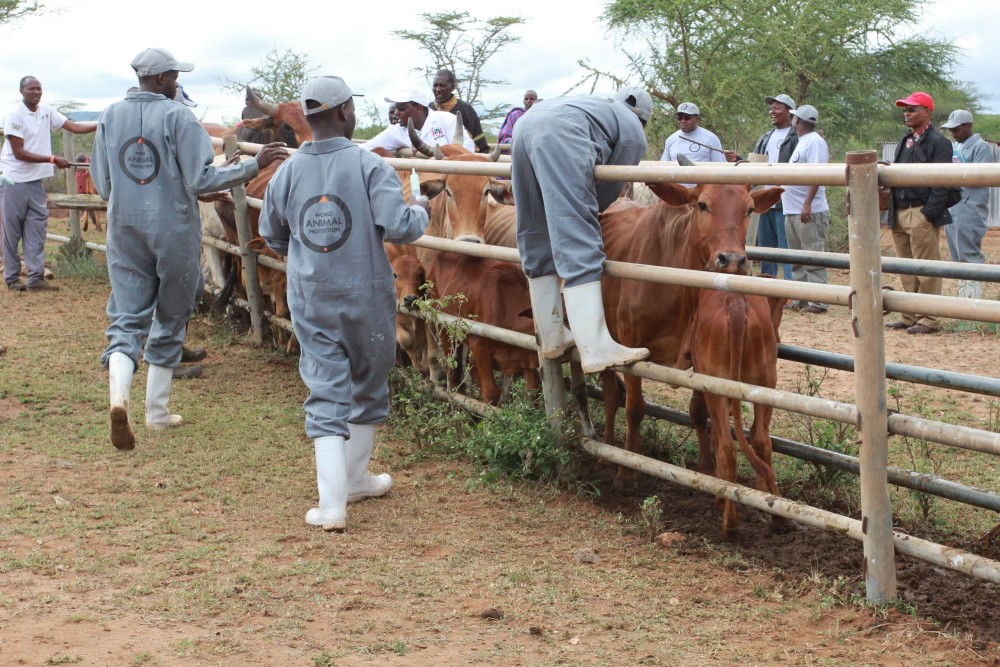
Animals receiving veterinary treatment.
Make a donation to support our disaster relief work



